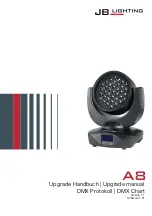
1
1 Safety information
◆
The tester is intended to use in compliance with the local rules of the electrical usage and avoid to
apply at the places which are inapplicable for the use of electrics such as hospital, gas station etc.
◆
To prevent the functional decline or failure, the product should not be sprinkled or damped.
◆
The exposed part of the tester should not be touched by the dust and liquid.
◆
During transportation and use, it is highly recommended to avoid the violent collision and vibration
of the tester, lest damaging components and causing failure.
◆
Don’t leave the tester alone while charging and recharging. If the battery is found severely hot, the
tester should be powered off from the electric source at once. The tester should not be charged over 8
hours.
◆
Don’t use the tester where the humidity is high. Once the tester is damp, power off immediately and
move away other connected cables.
◆
The tester should not be used in the environment with the flammable gas.
◆
Do not disassemble the instrument since no component inside can be repaired by the user. If the
disassembly is necessary indeed, please contact with the technician of our company.
◆
The instrument should not be used under the environment with strong electromagnetic interference.
◆
Don’t touch the tester with wet hands or waterish things.
◆
Don’t use the detergent to clean and the dry cloth is suggested to use. If the dirt is not easy to remove,
the soft cloth with water or neutral detergent can be used. But the cloth should be tweaked
sufficiently.
About Digital Multi-meter
◆
Before using, you must select the right input jack, function and range.
◆
Never exceed the protection limit values indicated in specifications for each range of measurement.
◆
When the tester is linked to a measurement circuit, do not touch unused terminals.
◆
Do not measure voltage if the voltage on the terminals exceeds 660V above earth ground.
◆
At the manual range, when the value scale to be measured is unknown beforehand, set the range
selector at the highest position.
◆
Always be careful when working with voltages above 60V DC or 40V AC, keep fingers behind the
probe barriers while measuring.







































